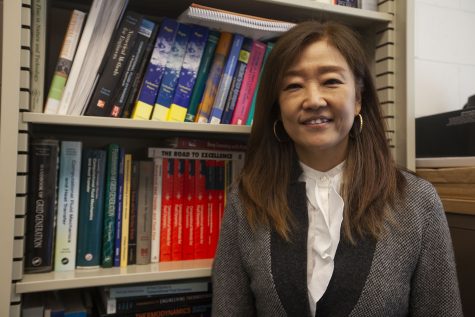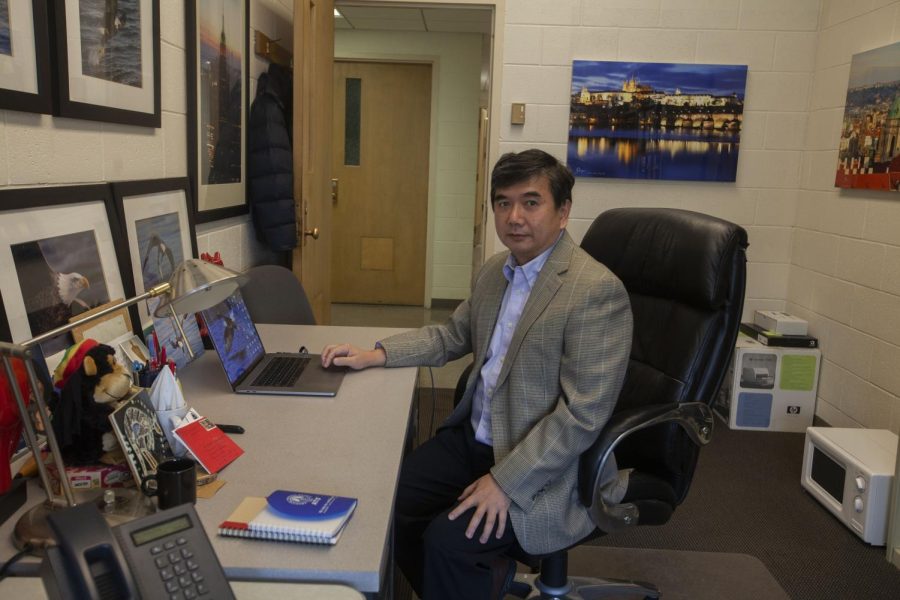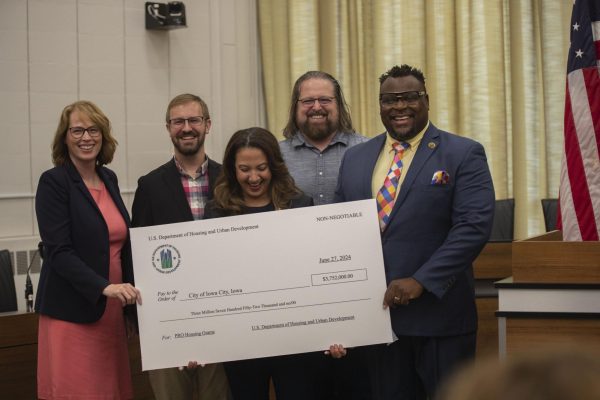UI professor awarded a $1 million grant to research machine learning, modeling, and simulation
Ching-Long Lin, a UI mechanical engineering professor, is part of a team that received a $1 million dollar grant, to focus on the educational gap between engineering scholars.
Ching-Long Lin, a professor at the University of Iowa, poses for a portrait on Wednesday, Feb 23, 2022, at Seamans Center.
February 24, 2022
A $1 million federal grant at the University of Iowa go towards increasing proficiency of UI engineering undergraduate and graduate students in the growing field of modeling and simulation and machine learning.
Ching-Long Lin, professor and departmental executive officer in mechanical engineering at the UI, is part of a team that received a $1 million grant from the U.S. Department of Education.
The first project of the grant will support new certificate programs for students moving from undergraduate to graduate programs. The grant may also implement student hack-a-thons and workshops, according to a UI release.
The grant was awarded in December 2021, Lin said. The research project is expected to take three years and will include five UI faculty members that will contribute to the research.
Lin said he is interested in this research because of the popularity of the UI College of Engineering focus area undergraduate curriculum. The program is 21 semester hours for students interested in the four focus areas such as design, energy and environment, manufacturing, robotics, and autonomous systems.

“Modeling and simulation is also a very important tool for students in the design focus area. So, we build on our strengths, and then add machine learning to this focus area to help us assist undergrad students and graduate students,” Lin said.
Lin said there are three important elements to the new certificate: modeling simulation, machine learning, and uncertainty quantification. These elements are the main idea for the certificate, he said, since most people are only proficient in one of the three areas.
Using machine learning and artificial intelligence data to develop models has been gaining momentum, he added.
RELATED: UI medical students to train in addiction medicine through federal grant
Shaoping Xiao, UI associate professor in mechanical engineering, said he wants to expose students to advanced numerical methods.
“I think everybody should know how to do programming, and to do some kind of numeric modeling simulation regardless of which major you are in,” Xiao said.
Lin said once the program is available, his team will recruit both undergraduate and graduate students to the program.
“The first component is to establish certificate programs that we have already submitted a proposal to the Graduate College for review,” Lin said. “Then, hopefully, we are able to kind of implement the program studying from last semester.”
Jane Russell, UI director of the office of teaching, learning, and technology research and analytics, said her role in this project is conducting outcome assessment.
She will collect various information to inform the research team on whether the curriculum and activities the program offers are having the desired impact on their students who enrolled in the program.
Russell said they are currently in the planning stage, as the team is trying to establish specific research questions and developing a research design that will have the best answer to their research questions.
“I will also be conducting research on student engagement and learning related to various learning activities to understand the students’ learning experiences that would lead to optimal learning outcomes,” she said.














